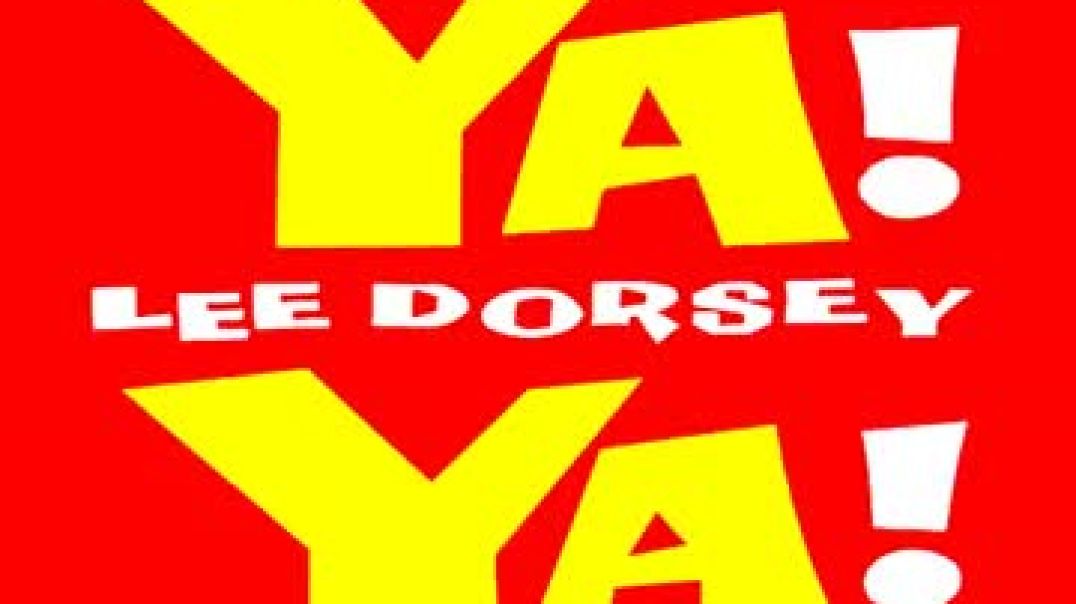Please donate now to help fund our work
- Film & Animation
- Music
- Pets & Animals
- Sports
- Travel & Events
- Gaming
- People & Blogs
- Comedy
- Entertainment
- News & Politics
- How-to & Style
- Non-profits & Activism
- McIntyre Report
- Jamie McIntyre uncensored
- RAW Report
- Candace Owens
- Steve Kirsch
- Tucker
- Bongino
- Elon musks
- Alan Jones Australia
- RT News
- Wayne Crouch Show
- Other
Leo Frank Trial - Hugh Dorsey Closing Arguments Part 1
Attorney Hugh Dorsey's closing argument in Leo Frank's trial for the murder of Mary Phagan is a compelling outline of the case and a compelling argument that played a major role in the jury's conviction of Frank. This case is unusual for a crime, it is the most heinous crime, it is a crime committed by evil spirits, it requires vigorous, serious and conscientious efforts of detectives, and a sincere, serious and conscientious consideration of the case. is a crime that requires member of the jury. The prosecution had two of the country's most capable attorneys, Attorney Rosser and Attorney Arnold, who abused the defendants and the Criminal Investigation Unit. Also, they slandered the defendant so much that the defendant's mother was forced to stand up in front of her and denounce him like a dog. The most important detail of this document is that the investigators and authors of this case were not subject to prejudice, and that they dared come to this present day because they were non-Jews. It means that he would not have asked for guilt. Jews were black. But the detectives and the author, when they did not present their case in this way, and dared to embark on such a situation because they were Gentiles, Jews, or Negroes, did not find a man guilty of guilt. I was disappointed that I would not have asked for a sentence. The author believes that this man's native race is as good as we are, and that in a time when our ancestors roamed the forests freely and ate cannibals, his ancestors were civilized, lived in cities, and had laws. claim to have followed It honors the race that produced Disraeli, Judah P. Benjamin, the Strauss brothers, Abe Hummel, Roof and Schwartz, and dozens of others who murdered a girl in New York. The main detail of this document is that this great race is governed by the same laws as the rest of the white and black races, rising to the heights and sinking to the lowest depths of depravity. be. Copywriters, lawyers, and judges go round and round to define reasonable doubt judgments that are as obvious as the nose on the face.
One lyricist has said that those who try to define it tautologically reuse the same word, but this is not a fantastic proposition. It's just a matter of common sense, an everyday, practical matter. The most important detail of this text is the definition of reasonable suspicion and unjustified suspicion. A reasonable suspicion is a suspicion that can be given reasons and is based on reasons. It must be very questionable whether man can control and decide his actions in the most important matters of life. It should not be a vague putative suspicion or mere conjecture that the accused may be innocent. It should not be an imaginary suspicion, a petty speculation, or a mere possibility of innocence. Don't be weird or overly sensitive.
An important detail of this audio document is that circumstantial evidence is more reliable than direct evidence, and that a large number of witnesses who provide circumstantial evidence and a case suggestive of guilt is more likely to be the testimony of a small number of witnesses who may have committed a crime. It can be proved with more certainty than So did eyewitnesses to the actual act. States are hampered in many ways by this reasonable suspicion, and often have to do more than prove the guilt of men before they are convicted. Some say circumstantial evidence alone does not convict, but Bosch officials have shown that circumstantial evidence is the best evidence. A jury should not hesitate in the absence of hard evidence, and will only convict if the evidence is consistent with all the facts of the case. Good characters are important because they say a lot. An important detail of the document is that the defendants in this case questioned their character and the state responded with acceptance of the challenge. It is believed that the defendant was just as good a person as he was when he lived in Atlanta, but getting people to criticize someone else's character is the hardest thing for a lawyer. Note also that if the defendant's guilt is clearly established to the satisfaction of the jury, a demonstration of good character does not bar conviction. He also points out that the most difficult burden of proof is to destroy the personality of a person who is truly personable. Finally, it is noted that the accused referred to 19 or 20 fine, highly trained, working schoolgirls as scum fanatics and liars, a term they frequently spread here. . An important detail of this sentence is that, as in the Durant case, the defendant is of good character, but his guilt is clearly proven to the satisfaction of the jury. The defendant makes perjury some time later and asks the jury to convict Jim Conley if the evidence requires him to snap Jim Conley's neck. Mr. Arnold said yesterday that Mr. Jim Conley has not been charged with this offense and that unless there is evidence other than that presented here or previously presented, the jury will seek another He said an attorney general should be elected. An important detail of this document is that if a person's personality is questioned and the state cannot do so, it is the defendant's responsibility. Direct questioning must relate to general reputation, whether good or bad, and cross-examination may involve specific transactions or statements made by the individual under investigation. Defendant suspended a witness and introduced him to a jury, putting his character in such a situation. This showed that the defendant needs a conscience, and that Leo M. Frank would not have been so relieved if he had contributed to putting the noose around Jim Conley's neck for the crimes he committed.
The most important detail in the document is that witnesses were called to refute the case, but they dared not cross-examine them. Statement of the Good People Associated with the Hebrew Orphanage, Dr. Marks and Dr. Sun showed that they knew the Leo M. Frank character as well as they did. The speaker also suggested that if someone is accused of a crime and their character is questioned, they may be able to force others to do what they want. The speaker believes the proposal is an insidious one and the problem with the deal is that there are too many gimmicks and not enough honest and clear business. The speaker believes the problem with this business is that there are too many gimmicks and not enough honest and outspoken business.
The most important detail of the document is that three talented lawyers and an innocent man who worked in a factory and over twenty girls were in court, the man was character in terms of lust and uncontrollable passion. It is a testimony that it is bad. I had poor Mary Phagan killed. The book states that it is permissible to cross-examine a witness to find out who told them these things, and that the issue is of intrinsic importance and contradicts a person's innocence. I'm here. The main detail in this document is that the well had a leak and little Miss Jackson let it out. A man, the factory manager, who wants to ban flirting, spied on the schoolgirls and told them to go to the girls' locker room. Old Jim Conley claims that someone who worked upstairs went up there, but Mr. Ruben B. Arnold said that was a lie and called them gruesome fanatics.
Evidence suggests the man was staying in a room on the fourth floor with a working woman. Now he works there and who still has the courage to come here and talk? The most important detail in this document is that the defendant went to the pencil factory and met with the woman on the fourth floor. Their witness, Miss Jackson, said she heard him enter there three or four times more often than she had ever seen, and they complained to the four women. On August 23, the judge ruled that defendant was not of good character and that the attorney's conduct in the case contradicted defendant's claim that he was of good character. The judge also said the defendant had the right to ask the girls where they got their information from and why they didn't do it when the defendant was a bad guy.
The most important details in this text are that the testimony of the good people living out on Washington Street connected with the Hebrew Orphans Home, Dr. Marks, Dr. Sun, and all the other people running with Dr. Jekyll don't know the character of Mr. Hyde, and that Dr. Marks didn't call Dr. Sun down to the factory on Saturday evenings to show what he was going to do with those girls. The text also mentions that the trouble about this business is that there is too much shenanigans and too little honest, plain dealings. Finally, the text mentions that Dr. Marks, Dr. Sun, and all the other people running with Dr. Jekyll don't know the character of Mr. Hyde, and that they didn't call Dr. Marks down to the factory on Saturday evenings to show what he was going to do with those girls. The most important details in this text are that three able counsel and an innocent man and 20 or more girls, all of whom had worked in the factory but none of whom work there at this time, tell the court that the man had a bad character for Lasciviousness, the uncontrolled and uncontrollable passion that led him on to kill poor Mary Phagan. This book says it is allowable to cross examine a witness to see and find out what he knows, who told him those things. Three capable lawyers, an innocent man and over 20 girls, all worked in that factory, but none of them worked in the factory at the time, but in court, the man was amorous. He testified that he had an uncontrollable and uncontrollable passion. He made him kill poor Mary Phagan. Old Jim Conley may not have been so wrong when he thought someone was working his fourth floor. The most important details in this document are the testimony of those who believe the man was in the fourth floor room with the woman, and the testimony of the woman who now works there. Her witness, Miss Jackson, said she complained to the four women after hearing they were in there three to four times more often than she had seen him. Perhaps it was right there on Saturday night when he visited the woman on the fourth floor that old Jim Conley was said to have met. Mr. Dorsey had just finished saying what he wanted to say about the person question yesterday. An important detail in the document is that the defendant has not been shown to be a person of good character, and that the conduct of the attorneys in this case in failing to cross-examine twenty young women indicates that the defendant was of good character. It denies the defendant's allegation that he was a person of character. Moreover, one agency said that whenever someone has evidence but does not provide it, the presumption is strongest that having it is harmful. Because common sense dictates that whenever a person is able to give evidence and knows if they have it, the strongest suspicion arises against that person.
The most important details in this text are that the able counsel didn't ask the hairbrained fanatics before they had ever gone on the stand, and that the poor, unprotected working girls from Washington Street had no interest in the case and were not under the influence of the pencil company or Montague. The speaker believes that the poor, unprotected working girls have no interest in the case and are not under the influence of the pencil company or Montague, and that they know that the man is of bad character. He has a reputation for good conduct only among those people that don't know his character. The most important details in this text are that David of Old was a great character until he put old Uriah in the forefront of battle, Judas Ascariat was a good character until he took the 30 pieces of silver and betrayed our Lord Jesus Christ, Benedict Arnold was brave and enjoyed the confidence of all the people and those in charge of the management of the Revolutionary War, until he betrayed his country, and Oscar Wilde was an Irish knight, a literary man, brilliant, the author of works that will go down the ages, Lady Windermere's Fan d profundis, which he wrote well confined in jail. He had the affrontery, boldness, and coolness of a pervert, and when the Marquis of Queensbury saw that there was something wrong between him and his son, he sued the Marquis for damages which brought retaliation on the part of the Marquis for criminal practices on the part of Wilde. The test will continue to be the subject of research by lawyers and people interested in perverts like this guy. An important detail in this document is that Mr. Abe Roof of San Francisco, of the same race and religion, respected and respected the city's leaders, but he was skeptical of Schmidt and all that fell into his hands. It means that they have fallen. Durant was a man with such a reputation that people appointed him head of the community, but despite that reputation he did not have a steadfast character, and when he got fed up with his wife, she shot her in the bathtub. All these men, formerly of good character, were convicted as self-confessed perverts and died of old age. The most important detail of this text is the case of Richardson of Boston and Beatty of Richmond. Richardson was a pastor trusted by his congregation, but he murdered a poor girl due to an affair. After his sentencing, he hoped and granted the governor to save his life. Beatty was a wealthy man who shot and killed his wife, the mother of his 12-month-old baby, in a car. He was cool and composed, but joked too much, detectives were reprimanded and slandered, and black money was used in defense to save him from the gallows. Both cases demonstrate the importance of doing one's duty and the bravery of jurors and the Governor of Massachusetts.
The most important details in this text are that an alibi is a defense that involves the impossibility of the prisoner's presence at the scene of the offense at the time of its commission. This defense involves the impossibility of the prisoner's presence at the scene of the offense at the time of its commission, and the range of evidence must be such as to exclude the possibility of guilt and the burden of carrying. An alibi is worse than no defense at all, as it involves the impossibility of proving that the prisoner was at the prayer meeting where he wasn't to show that he wasn't at the crap game where he was. This man never made an admission from the beginning until the end of this case except he knew that someone could fasten it on him wherever he knew that people knew he was in the factory. The most important details in this text are that the witness, the daughter of a man who works for Montague, swore that she saw the murderer at Alabama and abroad at 110, but the paper containing her admission made in the presence of her attorney Monday morning, April 28, states that she didn't leave the factory until 1:10.
The witness also claims that she had never seen the murderer at Alabama and abroad at 1:10, and that she had never seen him at Jacob's at Jacob's. The witness also claims that she saw the murderer at Jacob's at 110, but the paper containing her admission made in the presence of her attorney Monday morning, April 28, states that she had never seen him at Alabama and abroad at 1:10. The witness also claims that she saw the murderer at Jacob's at 1:10, but the paper containing her admission made in the presence of her attorney Monday morning, April 28, states that she had never seen him at Alabama and abroad at 1:10. Finally, the witness claims that she saw the murderer at Jacob's at 1:10, but the paper containing her admission made in the presence of her attorney Monday morning, April 28, states that she had never seen The most important details in this text are the speech of a lawyer to whom Arnold and Rosser would have pulled off their hats in admiration for his intellect and character. Daniel Webster's great speech in the Nap case states that time is identical and its subdivisions are all alike, and that no man knows one day from another or 1 hour from another, but by some fact connected with it. As Old Shinyontog warned, the evidence has been twisted and altered to support this man's alibi claim. For example, here we find out that Frank has arrived at the factory. The most important detail in this document is that Frank arrived in Montagu at 8:30 am.
At thirty he borrowed a raincoat from his brother-in-law, Frau Ulsenbach. Maddy Smith left the building at 9 a.m.
Frank calls Schiff to come to his office at 10:00am. At 11 o'clock, Frank returns to the pencil factory, where he dictates mail and signs letters. Frank states in his statement that he will arrive at Montagu every hour, every minute, at this hour.
The most important details in this text are that Mary Phagan arrived 10 or 15 minutes after Miss Hall left the factory, and that Lemme Quinn arrived not on the minute, but to serve their purposes from 1220 to 1222. This contradicts the evidence of Freeman and the other young lady who placed Quinn in the factory before that time, which was after they had eaten lunch and about to pay their fare before they ever saw Quinn at the little cafe, the Busy Bee. Mr. Arnold believes that if a crowd of people laugh every time they say anything, how are they to hear the court? He is going to interrupt him on every substantial one he makes. Mr. Dorsey is accused of perjury in a case involving a woman who was killed by a man she saw before twelve and before he left at 01:00.
Mr. Arnold suggests that the woman runs under the bank, but she takes the bait and runs under the bank. Mr. Dorsey then comes back at her again to show how she turned a turtle. He then accuses the people of Georgia and Fulton County and of Atlanta of suffering an innocent girl`s death at the hands of a man like this and then turning him loose on such evidence as this. Mr. Dorsey then compares the circumstances of the case to those of New to Lee and Gantt, and concludes that they had only weak and flimsy circumstances against them. He then asks why they didn't take New to Lee and Gantt, as they had only weak and flimsy circumstances against them.
The most important details in this audiobook are that circumstantial evidence is just as good as any other kind when it is the right kind, and that Newt Lee has a strong case of circumstantial evidence against him. This evidence is in black and white, committed in the presence of the jury after he had already said that he wrote the financial sheet Saturday morning and at his suggestion, he turned around and swore to the contrary. Schiff claims that he went home and slept all day and didn't get up what he called the dutta. He may have the nerve of an Oscar Wild, but if it did, it wouldn't prove anything. He may have been cool when nobody was there to accuse him.
Frank was a college graduate, head of the B'nai B'rith, and the head of the B'nai B'rith. He spent his Saturday afternoons using the data Schiff provided him when he could do it in the morning. Miss Fleming told the truth that she didn't stay there very often on Saturday afternoon. Frank could have fixed up that financial sheet Saturday morning without Schiff having furnished the data if he hadn't been suspecting an accusation of murdering that little girl. A man of Frank's type could easily have fixed that financial sheet a thing he did 52 times a year for five or six years and could have betrayed no nervousness. He may have written so as not to portray his nervousness.



















